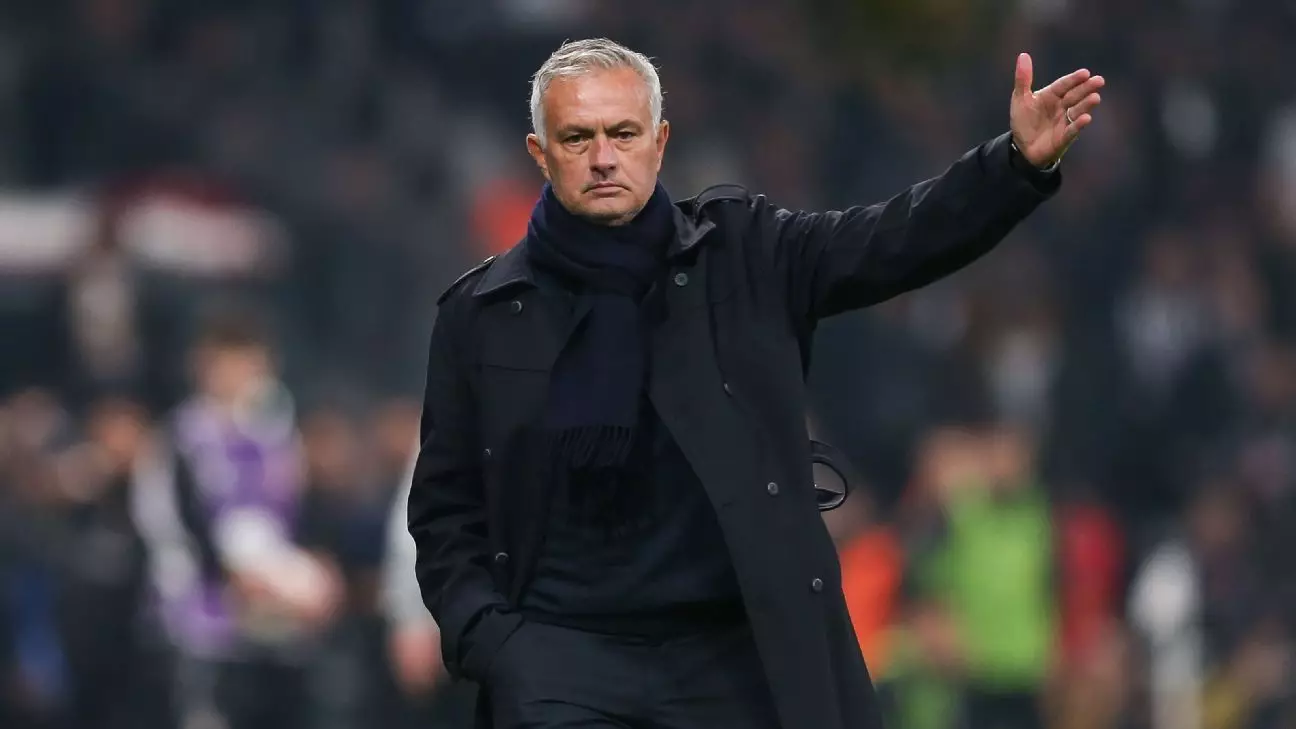Jose Mourinho’s recent comments about his future with Fenerbahce reveal a coach who is not merely riding the waves of uncertainty but rather steering the ship with a clear vision. Despite a disappointing 4-2 defeat against Hatayspor, Mourinho’s intentions for the next season remain robust. He emphasizes a straightforward dialogue with the club’s president, Ali Koç, indicating a mutual understanding about his continuity at the club. This is crucial not only for Mourinho’s peace of mind but also for the players and fans who thrive on stability.
Mourinho’s acknowledgment of Koç’s public support underscores the significance of trust in building a successful football club. A well-established rapport between the coach and management often fosters a conducive environment for growth, enabling teams to navigate through turbulent phases. As the dust settles on a season marked by ups and downs, it’s evident that Mourinho’s strategy hinges less on immediate triumph and more on long-term developmental objectives.
A Roster Reimagined
The scrutiny surrounding Mourinho’s decisions grows alongside the club’s underwhelming performances, with fans questioning the tactical discipline of his squad. When he expressed disappointment over the players’ motivation, it pointed to a larger issue: sustaining player engagement during a taxing season. However, dismissing this concern outright could be detrimental. Recognizing the psychological toll of a season ending allows both coaches and players to recalibrate and regain focus as they approach a new chapter.
Looking ahead, Mourinho faces the daunting task of restructuring his team to meet Champions League aspirations. His illustrious experience—coaching in multiple European finals—will come into play as he navigates the qualification rounds. The tantalizing prospect of leading Fenerbahce into Europe’s most prestigious tournament can invigorate both the squad and the fanbase, fueling a renewed sense of ambition that has perhaps waned during this season’s disappointing stretch.
Refereeing and External Pressures
Mourinho’s candid critique of Turkish referees echoes a sentiment felt across many leagues worldwide, hinting at a systemic issue that could hinder player and coaching morale. His vocal approach might rub some fans the wrong way, but it reflects a deeper frustration with external factors influencing match outcomes. Rather than deflecting blame entirely, Mourinho’s remarks call for collective accountability within the league, urging a refinement of officiating standards to elevate the game’s integrity.
This backdrop of officiating disputes adds layers of complexity to Fenerbahce’s journey, pushing Mourinho to be more than just a tactical strategist; he must also be a psychological motivator who reinforces resilience in the face of external challenges.
The Road Ahead: Champions League Aspirations
As Mourinho gears up for what promises to be a transformative summer, the stakes are palpable. With a second-place finish and looming qualifications for the Champions League, Fenerbahce stands at a crossroads—one that could either cement Mourinho’s legacy or derail ambitions altogether. His focus on embracing the highs and lows of professionalism illustrates a philosophy that every club should adopt when aspiring for greatness.
The challenges are many, but so are the opportunities for growth and success. Mourinho’s candid yet pragmatic take on his situation fosters both hope and excitement for what’s to come. His ability to drive commitment and instill confidence will be paramount as he seeks not just to participate in but to excel in Europe’s elite competitions.


Leave a Reply